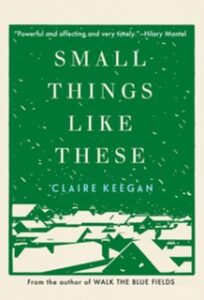More Layoffs: A Sign of… What?

As you know if you’ve been reading this blog for any length of time, I’m pessimistic about the economy. American GDP is down. Inflation is up. And rising crime and taxes are driving big companies and wealthy taxpayers from our major cities.
One of the bright spots has been employment. Starting with the COVID shutdowns and accelerating with the government bailouts, the number of Americans looking for work dwindled. That created a workers’ market, with two openings for every person looking for a job.
During that time, most of the businesses in which I’m involved were finding it challenging to hire and retain good employees. Many of their CEOs told me that their biggest worry was about losing those good employees. I told them that I didn’t feel that way. I felt that the imbalance was temporary. That the job-seeker/ job-opportunity pendulum would swing to the other side. And before long, millions of Americans would be looking for work.
As I mentioned here many times during those years, I believed the US was moving into a deep and extended recession. One reason for my pessimism was the fact that when sales ebb in the financial information industry, it’s an indicator that sales in the larger industry of corporate and personal finance will tend to drop soon thereafter. This has been the case for pretty much every economic downturn since I got into this business 40 years ago. And about two years ago, I began to see sales slowing down.
So, there was that. Then, as the months passed, I began to hear similar stories of declining revenues and profits from CEO friends in other industries. And recently, I began hearing the same story from the commercial and residential real estate markets.
It was all anecdotal and hearsay. But when the economic data alert re inflation and GDP began flashing early this year, I began to feel more certain about my worries. The assurances that these trends were temporary from the Biden administration’s economic captains, Janet Yellen and Jerome Powell, didn’t make me feel any better. No, I thought. Higher inflation and lower GDP aren’t going to be temporary. What is going to be temporary is the low unemployment numbers – the only positive economic data they had.
I’m not pretending that this is a solid economic argument. Consider it an update on a gut feeling. Take it or leave it. But since the feeling is strong, I’m going to be giving you news that serves to support or refute it.
Here’s an example – data gathered by Charlie Bilello, and published by Bonner Private Research:
* Twitter is cutting 50% of its workforce (3,700 jobs).
* Facebook is cutting 13% of its staff (11,000 jobs), its largest round of layoffs ever.
* Snap is cutting 20% of its workforce (1,200 jobs).
* Shopify is cutting 10% of its workforce (1,000 jobs).
* Netflix cut 450 jobs in two rounds of layoffs.
* Microsoft is cutting <1% of its workforce (1,000 jobs).
* Salesforce is cutting 1,000 jobs.
* Robinhood is cutting 31% of its workforce.
* Tesla is cutting 10% of its salaried workforce.
* Lyft is cutting 13% of its workforce (700 jobs).
* Redfin is cutting 13% of its workforce.
* Coinbase is cutting 18% of its workforce (1,100 jobs).
* Stripe is cutting 14% of its workforce (1,000 jobs).
There may be a way to put a positive spin on these facts. But to me, right now, it feels like recession.
 MarkFord
MarkFord

